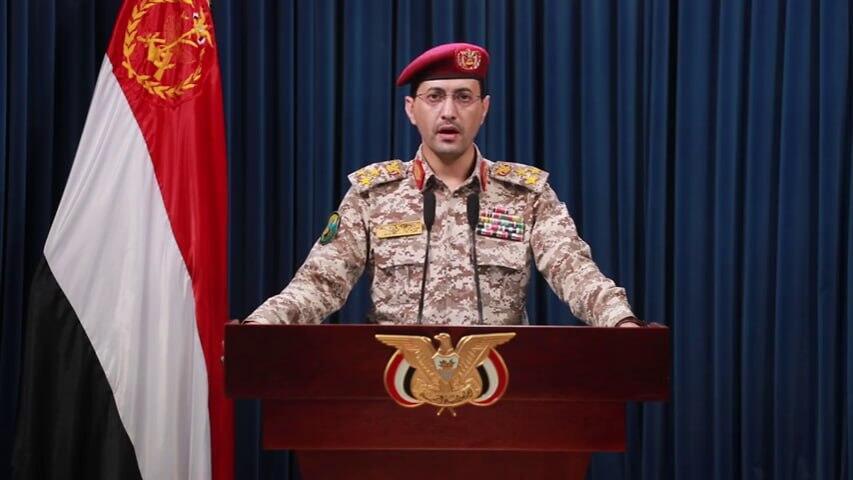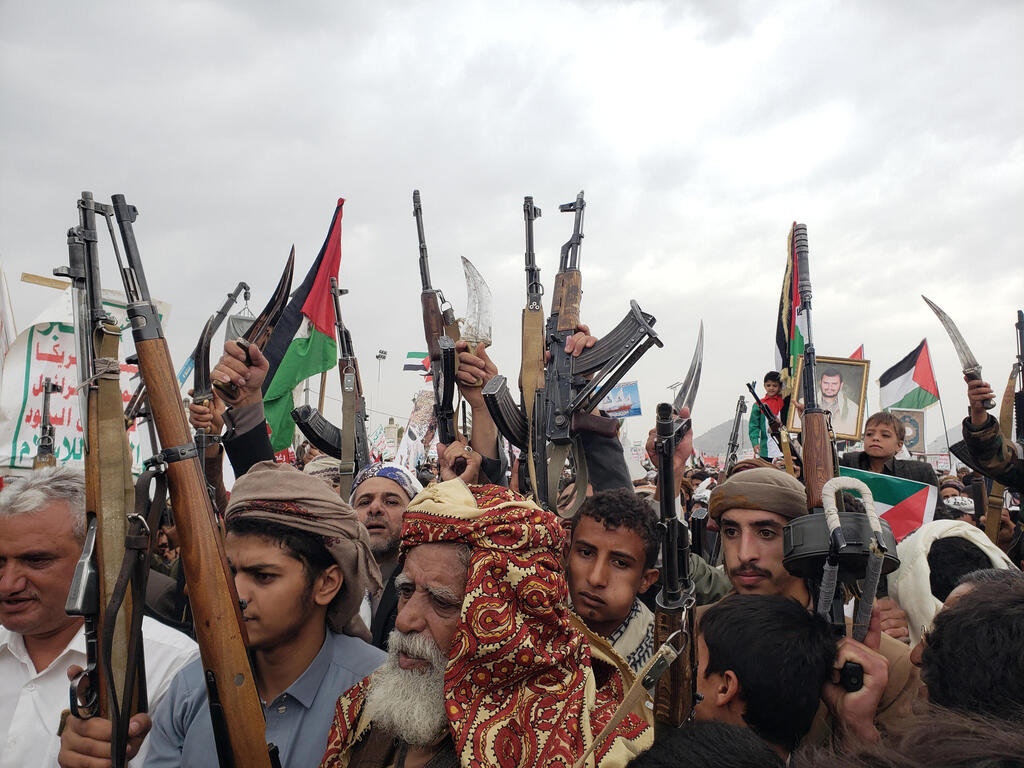Getting your Trinity Audio player ready...
Since the Houthis joined the fight against Israel as an additional front that "supports Gaza" and as part of the Shi'ite-Iranian axis, the threats from Yemen have not stopped. The Houthis have announced their several launches at Israel, such as their recent deadly attack and their announcement in June, where they took responsibility for firing cruise missiles at a "vital target" in Haifa. The latter were never confirmed in Israel.
The Islamic Resistance in Iraq also said it carried out two joint military operations with Yemen's Houthis on Israel's Haifa port. The terror organization claims to shoot at Israel non-stop. However, if nothing significant happens in Israel, it has not happened in the eyes of the country. At times their reports are corroborated with reports of rocket intercepts.
Over the course of the war, the Houthis have announced "phases of escalation" against Israel. Until the attack on Tel Aviv, they announced that they were in the fourth escalation stage, during which they attacked ships whose companies are cooperating with Israel. Besides the Red Sea, where the Houthis are operating, this is the case in the Mediterranean Sea as well.
Footage of drone strike
The Houthis have been introducing new weapons time and time again during the war. Recently, they introduced their unmanned explosive boat and the "Palestine" missile. They named the drone from Friday's deadly strike "Jaffa," which is part of the Tel Aviv municipality. According to the Houthis, it is impossible to detect the aircraft and it is capable of penetrating the Israeli defense systems. As part of the announcement of the operation, Yahya Saree, the Houthi military spokesperson, said that Tel Aviv has become "unsafe" because they have a target bank.
As part of their campaign against Israel, the Houthis use drones, cruise missiles, ballistic missiles, and offensive boats. They usually fail to cause any damage but repeatedly report their attacks were successful in their claims of responsibility. In recent weeks, they even joined the Islamic Resistance in Iraq for joint operations against Israel.
The Houthis' multitude of operatives should not be ignored. They have been carrying out drills in their territory, which include simulations of attacking and taking over Israeli cities and bases, training their forces to infiltrate Israel. Although they are far from Israel and the U.S. is leading the anti-Houthi coalition, they proved with the drone strike that they are a serious problem for Israel.
It must be remembered that their direct coordination with the Palestinian, pro-Iranian actors, and with the terrorist organization Hezbollah, gives them access to other Israeli borders. This means that a Houthi response does not necessarily have to come from Yemen. They claim they have self-made weapons, but the terror organization receives military support from Iran. Iranian military experts assist them and any small change in Iranian weapons made on Yemeni soil can be considered a "Yemeni upgrade."








